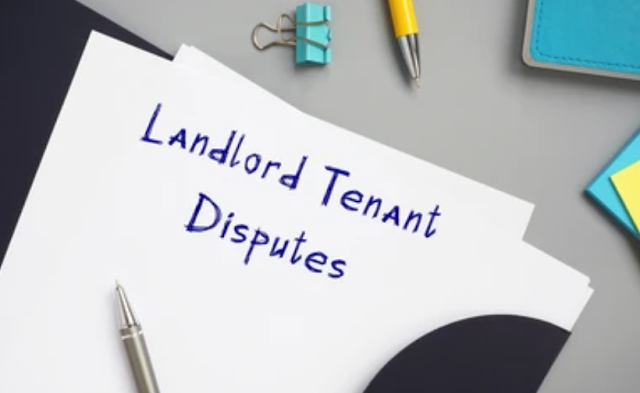Landlord-Tenant Disputes: Common Issues and Resolution Strategies
Landlord-Tenant Disputes: Common Issues and Resolution Strategies
Landlord-tenant disputes can arise due to various issues and disagreements during the rental period. These disputes can cause stress and strain the landlord-tenant relationship. It is important to address these issues promptly and effectively to maintain a harmonious rental environment. In this detailed explanation, we will explore common issues that lead to landlord-tenant disputes and provide resolution strategies for each.
Non-Payment of Rent:
Non-payment of rent is one of the most common issues that can lead to disputes. Landlords rely on rental income to cover expenses and maintain the property. When a tenant fails to pay rent, it can create financial difficulties for the landlord.
Resolution Strategies:
- Communication: Landlords should reach out to the tenant to discuss the issue and inquire about the reason for non-payment. Open communication may help uncover any underlying problems and find a mutually agreeable solution.
- Payment Arrangements: If the tenant is facing temporary financial difficulties, landlords can consider negotiating a payment plan to help the tenant catch up on the rent gradually.
- Legal Action: In cases of persistent non-payment, landlords may need to initiate legal proceedings, such as eviction, following the appropriate local laws and regulations.
Property Maintenance and Repairs:
Disputes may arise when there are maintenance or repair issues within the rental property. Tenants have the right to live in a safe and habitable environment, while landlords are responsible for addressing maintenance requests promptly.
Resolution Strategies:
- Written Maintenance Requests: Tenants should submit written maintenance requests to the landlord, clearly outlining the issue and providing necessary details. This creates a record of the request.
- Timely Response: Landlords should respond to maintenance requests promptly and address the issues within a reasonable timeframe. Communication regarding the progress of repairs is crucial to maintain transparency.
- Maintenance Responsibilities: Both parties should refer to the lease agreement or local laws to determine which maintenance responsibilities fall under the tenant's or landlord's purview.
- Mediation or Arbitration: In cases where there is a dispute about maintenance or repairs, mediation or arbitration can be considered to resolve the issue with the help of a neutral third party.
Security Deposit Disputes:
Security deposit disputes often arise at the end of the tenancy when the landlord and tenant disagree on deductions or the return of the deposit.
Resolution Strategies:
- Pre-move-out Inspection: Conduct a thorough inspection of the property with the tenant before they move out. This allows both parties to identify any damages or cleaning requirements and discuss potential deductions.
- Proper Documentation: Document the condition of the property before and after the tenancy with photographs and written descriptions. This provides evidence in case of disputes regarding damages.
- Review of Local Laws: Familiarize yourself with local laws and regulations regarding security deposits, including the timeline for return and allowable deductions.
- Communication and Negotiation: Landlords and tenants should engage in open communication and negotiate in good faith to reach a fair agreement regarding the return of the security deposit.
Lease Violations:
Lease violations can occur when either the landlord or tenant fails to adhere to the terms and conditions outlined in the lease agreement. Common lease violations include unauthorized subletting, pet policy violations, noise disturbances, or failure to maintain the property.
Resolution Strategies:
- Notice and Communication: The aggrieved party should provide written notice to the violating party, clearly stating the lease violation and requesting corrective action.
- Mediation or Arbitration: If communication fails to resolve the issue, engaging in mediation or arbitration can help facilitate a compromise or decision with the assistance of a neutral third party.
- Legal Action: In cases where the lease violation continues despite attempts at resolution, legal action such as eviction or a lawsuit may be necessary to enforce compliance.
It is important for both landlords and tenants to understand their rights and responsibilities under the lease agreement and local laws. Maintaining open lines of communication, addressing issues promptly, and seeking resolution through negotiation or mediation can help prevent disputes from escalating and promote a positive landlord-tenant relationship.
In situations where disputes cannot be resolved through communication or negotiation, seeking legal advice from an attorney specializing in landlord-tenant law can provide guidance on specific rights and obligations based on the applicable jurisdiction.















No comments